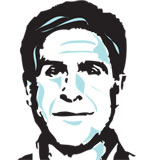Luxembourg: The Country with the Highest GDP Per Capita
Understanding Gross Domestic Product: Part 11
Luxembourg has such a high GDP per capita it will well repay our efforts to investigate why this should be the case. What we will see is that that the country benefits from a particularly unusual concatenation of circumstances, and it is the confluence of these circumstances that make Luxembourg so economically successful. As we will discuss later, these are the principles that, generally, lend themselves to high per capita GDPs.

The formal name of Luxembourg is the Grand Duchy of Luxembourg. The country is a parliamentary democracy, whose head of state is a hereditary monarch known as the Grand Duke (currently Grand Duke Henri). Luxembourg has a history of stable governments, a free press, relatively little ethnic strife, and the absence of a significant underclass. As a result, Luxembourg is a small, stable, peaceful, well-governed country. Over the years, Luxembourg’s government has acted prudently and wisely when it comes to encouraging the growth of the economy. To see what I mean, let’s take a quick tour of the most important parts of the Luxembourg economy.
Steel: Traditionally (since 1911 actually), Luxembourg has been known for its iron and steel industry. Indeed, this industry is still important to Luxembourg, accounting for a full 7 percent of the country’s economy. Luxembourg is home to the largest steelmaker in the world, a company named ArcelorMittal, which produces 8 percent of the world’s entire steel output. Nevertheless, as important as steel is to Luxembourg, the country has vastly increased its wealth by developing two other important industries: financial services and technology.
Financial Services: For years, Luxemburg’s government and business-friendly legal system have supported the financial services sector of the economy, enabling the country to be particularly attractive to foreign investment. As a result, Luxembourg has become a major worldwide banking and financial center.
For instance, this tiny country — smaller than Delaware, with fewer people than Wyoming — is home to 155 different banks! Not bank branches, but actual banking companies, most of which are foreign companies with offices in Luxembourg. As a result, banking is now the largest single part of the Luxembourg economy, surpassing even the steel industry.
Moreover, banking is only one part of the country’s vast financial services sector. Luxembourg’s financial services industry, for example, also specializes in the administration of international investment activities, such as mutual funds, hedge funds, and pension funds.
Technology: In addition to financial services, Luxembourg is also one of the most important technology and e-commerce hubs in Europe. Because of the government’s significant long-term support of the technology sector, Luxembourg has an enormous, ultra-high-speed communications infrastructure, as well as multiple data centers. As a result, this very small country is able to offer massive international connectivity to the global network. One nice benefit for the people of Luxembourg is that virtually all residents have access to very high-speed Internet access over national fiber-optic networks that connect directly to their homes.
Although Luxembourg is a small country, both in population and land mass, it has a variety of political, social, and economic factors that over the years have enabled the country to develop a highly sophisticated, post-industrial, tech-driven service economy. Because of this, Luxembourg is known around the world as a business-friendly country, with low corporate taxes, a stable work force, and government incentives with respect to investment, all of which — with its small population — results in an unusually high GDP per capita.
This is one of a multi-part series on Understanding Gross Domestic Product appearing biweekly at independent.com. Next time: “Understanding GDP.”
Harley Hahn has a degree in mathematics and computer science from the University of Waterloo in Canada, a graduate degree in Computer Science from UC San Diego, and has studied medicine at the University of Toronto Medical School. Hahn is a writer, philosopher, humorist, and computer expert. In all, he has written 30 books that have sold more than 2 million copies, and his work is archived by the Special Collections Department of the UC Santa Barbara library. Hahn has written widely about money and economics, and is also an accomplished abstract artist and a skilled musician. See more at www.harley.com.



